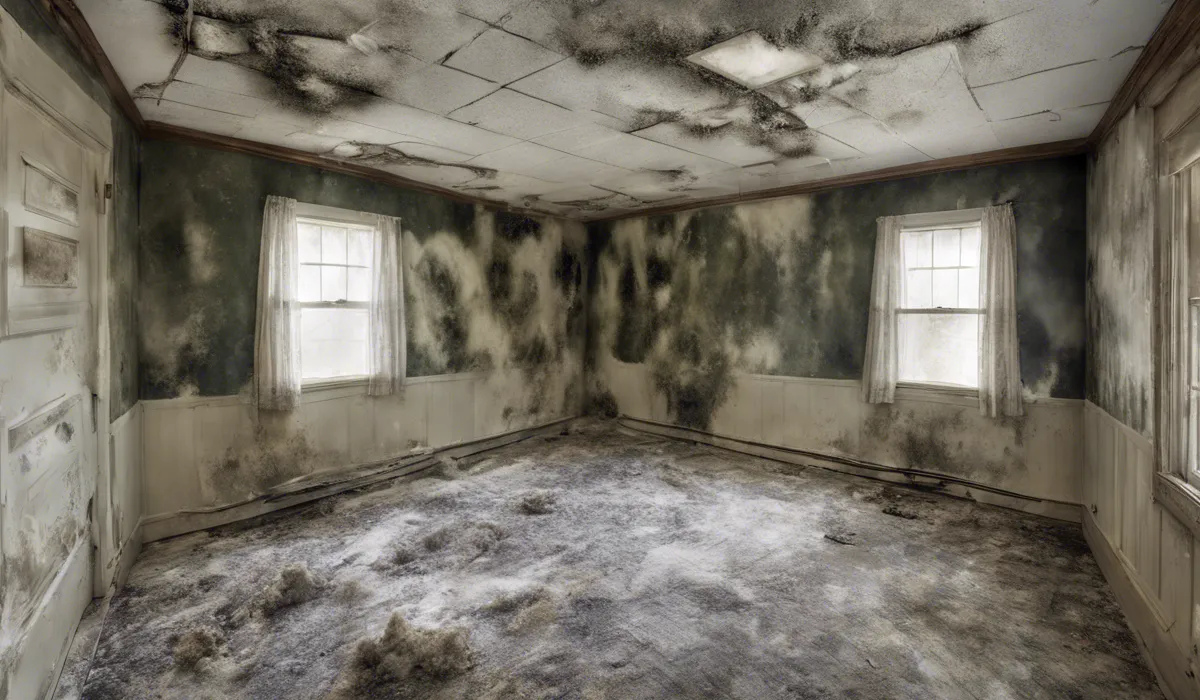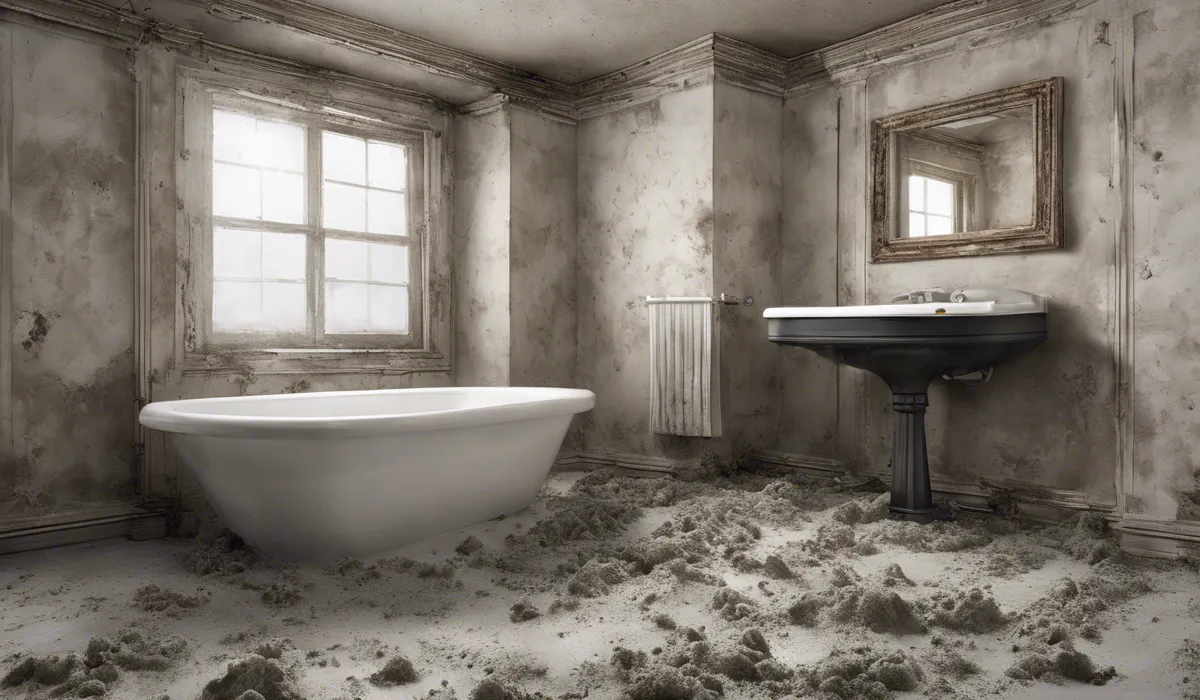To become mold remediation certified, research the requirements of your state or country, as they can vary. Typically, you must complete a mold remediation course from an accredited institution, pass an exam, and obtain practical experience. Afterward, apply for certification with a professional body like the IICRC or ACAC.
Understanding Mold Remediation Certification

Definition of Mold Remediation
Mold remediation is the process of identifying, containing, and removing mold from an indoor environment.
It involves not only the cleanup of mold but also addressing the source of moisture that allowed the growth to occur, ensuring a safe and healthy environment.
Importance of Certification for Professionals
Certification is crucial for mold remediation professionals as it validates their expertise and knowledge in handling mold safely and effectively.
It reassures clients that the professional adheres to high industry standards and is committed to quality workmanship.
Overview of the Certification Process
The certification process for mold remediation typically involves meeting educational and work experience requirements, completing specialized training, and passing a comprehensive exam.
It is designed to ensure a professional is competent in mold remediation techniques and safety protocols.
Types of Certifications Available
Several types of certifications are available, including Certified Mold Professional (CMP), Certified Mold Remediator (CMR), and Certified Mold Inspector (CMI).
Each certification targets different aspects of mold assessment and remediation.
Agencies and Organizations That Offer Mold Remediation Certification
Reputable organizations such as the Institute of Inspection, Cleaning and Restoration Certification (IICRC) and the American Council for Accredited Certification (ACAC) offer mold remediation certifications, ensuring industry-approved standards.
Role of Certification in Establishing Credibility and Trustworthiness
Certification serves as a badge of credibility and trustworthiness, signaling to clients and employers that a professional has met stringent industry requirements and is dedicated to ongoing education in the field of mold remediation.
Steps to Becoming Mold Remediation Certified

Meeting the Prerequisites for Certification
Education Requirements
An individual seeking certification must have a strong foundation in education, often requiring a high school diploma or equivalent, and in some cases, post-secondary education in a related field such as environmental science or public health.
Work Experience
Practical experience is important in mold remediation. Candidates are typically required to have a certain amount of work experience under the supervision of a certified professional or need to demonstrate competency through documented projects.
Selecting the Right Certification Program
Comparing Different Certification Bodies
Prospective mold remediation professionals should compare certification bodies like IICRC and ACAC, considering factors such as reputation, the rigor of the program, and the value of the certification in the industry.
Evaluating the Focus and Relevance of the Program
Select a certification program that aligns with your career goals and specializes in the area of mold remediation you wish to focus on, whether it’s inspection, testing, or removal.
Completing Required Coursework and Training
Details About the Curriculum
The curriculum for mold remediation certification often covers topics such as mold biology, moisture control, health effects, remediation techniques, and safety procedures to prepare candidates for real-world application.
Hands-On Training and Its Importance
Hands-on training is a critical component, providing experience with equipment and techniques essential for effective mold remediation. It allows for practical application of the knowledge gained in the classroom.
Preparing for the Certification Examination
Study Materials and Resources
Candidates should utilize study guides, practice exams, and other resources provided by certification bodies to prepare for the exam. These materials are designed to reinforce learning and ensure a comprehensive understanding of mold remediation.
Exam Format and Topics Covered
The certification exam typically includes a mix of multiple-choice and true/false questions that cover all areas of mold remediation, from assessment and documentation to remediation strategies and safety protocols.
Taking and Passing the Certification Exam
After thorough preparation, candidates must take and successfully pass the certification exam. A passing score demonstrates a candidate’s proficiency in mold remediation principles and practices.
Continuing Education and Maintaining Certification
Requirement for Ongoing Learning
Certified professionals are required to engage in ongoing learning to stay current with the latest industry trends, technologies, and regulations. This may involve attending workshops, seminars, or additional courses.
Renewal Processes and Intervals
Certification typically needs to be renewed every few years. The renewal process usually includes submitting proof of continuing education credits and may require retesting to ensure ongoing competency in mold remediation.
Advancing Your Career with Mold Remediation Certification

The Benefits of Being Certified in Mold Remediation
Increased Job Opportunities
Certification opens doors to new job opportunities as employers and clients often prefer or require professionals to have recognized credentials that prove their expertise in mold remediation.
Higher Potential Earnings
Certified mold remediation professionals can demand higher wages due to their verified skills, knowledge, and commitment to industry standards, leading to increased earning potential.
Enhanced Professional Reputation
A certification is a testament to a professional’s dedication to their craft and can greatly enhance their reputation within the industry, making them a sought-after expert in the field.
Marketing Your Certification to Potential Clients
Leveraging Credentials in Advertising and Promotions
Professionals should prominently display their mold remediation credentials in marketing materials, on business cards, and on social media to differentiate themselves from competitors and instill confidence in potential clients.
Networking Within the Industry
Networking with other professionals and joining industry associations can lead to referrals, collaborative opportunities, and increased visibility in the mold remediation community.
Commitment to Professional Development
Staying Updated with Industry Standards and Practices
Professionals must stay informed of changes in industry standards and best practices through continuing education to ensure they are providing the most effective and safe mold remediation services.
Opportunities for Advanced Certifications and Specializations
Pursuing advanced certifications or specializations can further a professional’s knowledge and open up opportunities for leadership roles or niche services within the mold remediation industry.
Success Stories of Certified Mold Remediation Professionals
Looking at success stories of certified professionals can be inspiring and provide valuable insights into the benefits of certification.
These case studies often highlight the career progression and increased business revenue attributed to having a mold remediation certification.
FAQs About Becoming Mold Remediation Certified
What are the first steps to become mold remediation certified?
The first steps include researching the specific requirements of your state or country, as regulations can differ. You will typically need to complete an accredited mold remediation course and pass the associated exam.
Is practical experience required for mold remediation certification?
Yes, obtaining practical experience is usually a requisite for certification, but the amount and type may vary depending on the certifying body and regional regulations.
Where can I find an accredited mold remediation course?
Accredited mold remediation courses can be found through professional institutions like the Institute of Inspection, Cleaning and Restoration Certification (IICRC) or the American Council for Accredited Certification (ACAC).
How do I apply for mold remediation certification after completing the course?
After completing the course and necessary exams, you can apply for certification through a professional body such as the IICRC or ACAC. They will guide you through their specific application process.
Do mold remediation certification requirements vary by region?
Yes, certification requirements for mold remediation can vary significantly by state or country, so it’s essential to check local regulations before pursuing certification.
Final Thoughts
Becoming mold remediation certified requires understanding your region’s specific criteria.
This typically involves completing accredited coursework, passing an examination, and gaining hands-on experience. Once these steps are completed, certification can be sought from recognized bodies such as the IICRC or ACAC to become a certified mold remediation professional.
